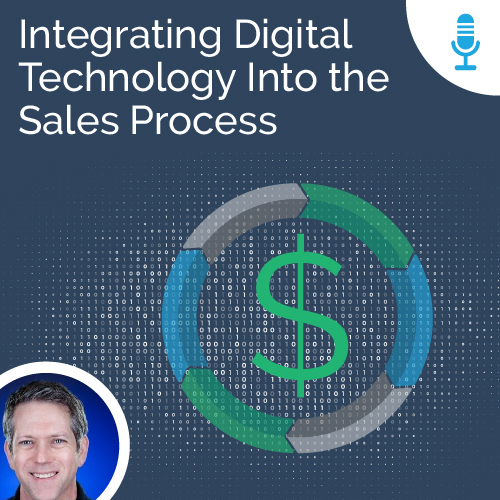Integrating Digital Technology Into the Sales Process
Episode Notes/Resources:
In this episode of “Salesforce Simplified” we’re talking with Carve Consulting Co-Founder Erik Nelson about integrating digital technology into the sales process.
Erik Nelson on LinkedIn:
Carve Consulting:
Additional Resources:
HexArmor’s Sales Director Talks About Sales Cloud:
Maximizing Salesforce for Sales Teams:
Transcription:
Speaker 1:
Thanks for stopping by. This is Salesforce Simplified, the podcast from Ad Victoriam Solutions.
Mike Boyle:
Hello everyone, and welcome. I’m Mike Boyle from Ad Victoriam Solutions. This is the Ad Victoriam Salesforce Simplified podcast. And in today’s episode, we have the privilege of talking with Carve Consulting co-founder Erik Nelson. Topic today is integrating technology, digital technology into the sales process. And Erik, I want to welcome you to the podcast. It’s a pleasure to have you with us.
Erik Nelson:
Thank you, Mike. Great to be here.
Mike Boyle:
Now, Erik, before we get on with today’s topic, I’d like you to tell us a little bit about you. Tell me about your background, talk to me about your Salesforce pedigree, and obviously we want to talk about what you do at Carve Consulting.
Erik Nelson:
Yeah, thank you. Well, as you mentioned I’m one of the founders of Carve Consulting. Spent the last 25 years or so in software doing consulting, sales, and leading teams. Most recently at Salesforce where I spent the last five and a half years or so leading different vertical teams. And recently three of us from Salesforce with a combined 23 years experience, decided to start a consulting company focused on developing repeatable and scalable sales processes using frameworks and data that we kind of have learned over the years so that they can run a more predictable business. We offer these services through outcome based projects or fractional models. That way we can work with them on an ongoing basis if needed.
Mike Boyle:
Alrighty, and let’s get into today’s topic. Again, we’re talking about integrating digital technology into the sales process. Erik, in today’s business world, what would a successful integration of digital technology into the sales process look like?
Erik Nelson:
Yeah, I think there’s a lot of great ways to view this. I think in my mind, a successful integration of technology in the sales process is when the technology mirrors the intended sales process and ultimately data’s flowing through the system in a way to serve the seller or the customer with information at the right time. It needs to learn things along the way based on inputs from the users I think, so you can adjust the processes as needed and it should ultimately identify the lower value activities and automate them to free up the seller to focus on those high value activities so they’re most productive and likely to close business. When successful, I think it’s also a seamless experience for the end users and they should be ultimately clueless to which technology does what under the covers.
You don’t want the users to focus on the technology, just the process. Finally, I think it’s important to get to, an important goal to get to the point where technology covers the entire life cycle of the customer journey. So, I think of that as all the way from the top of the funnel through the sale and future renewals. So, a closed loop process.
Mike Boyle:
One of the things that we talk an awful lot about in our business is customer experience. How can technology and enhance the customer experience within the sales process?
Erik Nelson:
Customers are smart these days. They’ve got many of their own avenues to do their own research. They might engage you later in the process, and in many cases I think they know as much as the average salesperson about the market and their product. So, it’s important not to waste their time and spam them with basic information they can find on their own. I think technology needs to help sales sell with more relevant and targeted information, doing it at the right time, and it should help customers get a better experience, including self-service if that’s what they want. So, I think you need to give to get here and you should bring gifts of insights to your customers all the time.
Mike Boyle:
Well, with your Salesforce background and what you’re doing now at Carve, this question’s really right down your alley. Talk to us about some of the key considerations when choosing technology to integrate into the sales process.
Erik Nelson:
I think you need to always start with identifying the gaps of automation in your current process. Salesforce is the CRM you use. You need to understand the roadmap of what they will deliver as part of the platform to fill those gaps. I would think about a platform approach as much as possible. It can be very difficult to integrate other technologies, consolidate all that data and keep a seamless experience going for your users with too many different technology platforms. But if you do need to look at alternatives, I think the first thing you consider is are you partnering with the right company to help you? Are they proven? Have they invested in your pain and can they support your needs? And be sure the technology fits into the current environment so you can continue to have that seamless process outlined for your teams.
In my experience, if you get people out of the process too much along the way, we used to work on this with our customers all the time as try to streamline the process. Don’t go too many places for too much information because they’ll struggle with adoption if there’s too many places to go. And just be sure that anything that you’re going to add is going to add significant value above what you have. So this is an area we’re helping a lot of companies today, small and large.
Mike Boyle:
Data and analytics, obviously an important component here. How can data and analytics be utilized to optimize sales process with technology?
Erik Nelson:
Data and analytics are important obviously in every area of your business. They’re used to run your business and forecast your future. I think it’s important to monitor data to continually measure what’s working and what’s not in the sales process as well. Assuming you have a defined process to start, then you can utilize many metrics to iterate the effectiveness of your sales process. So, for instance, who is the ideal customer? How did you get them? How long does it take to close a deal or how long does it take to get to value and ultimately why they churn? Those are several examples and metrics you can measure to understand areas, you can improve the process. So, you got to be able to track these and others possibly so you can make changes to your process, which make a measurable impact on these metrics and ultimately your business.
So, I think you also need to focus on productivity metrics. We called that in Salesforce, we called that participation, right? You need to identify those pockets where the process is breaking down for some people for some reason and dig into that. And I think it’s ultimately important to partner with your sales strategy or your rev ops team to ensure the success and make sure you’re measuring and baselining at the right time.


